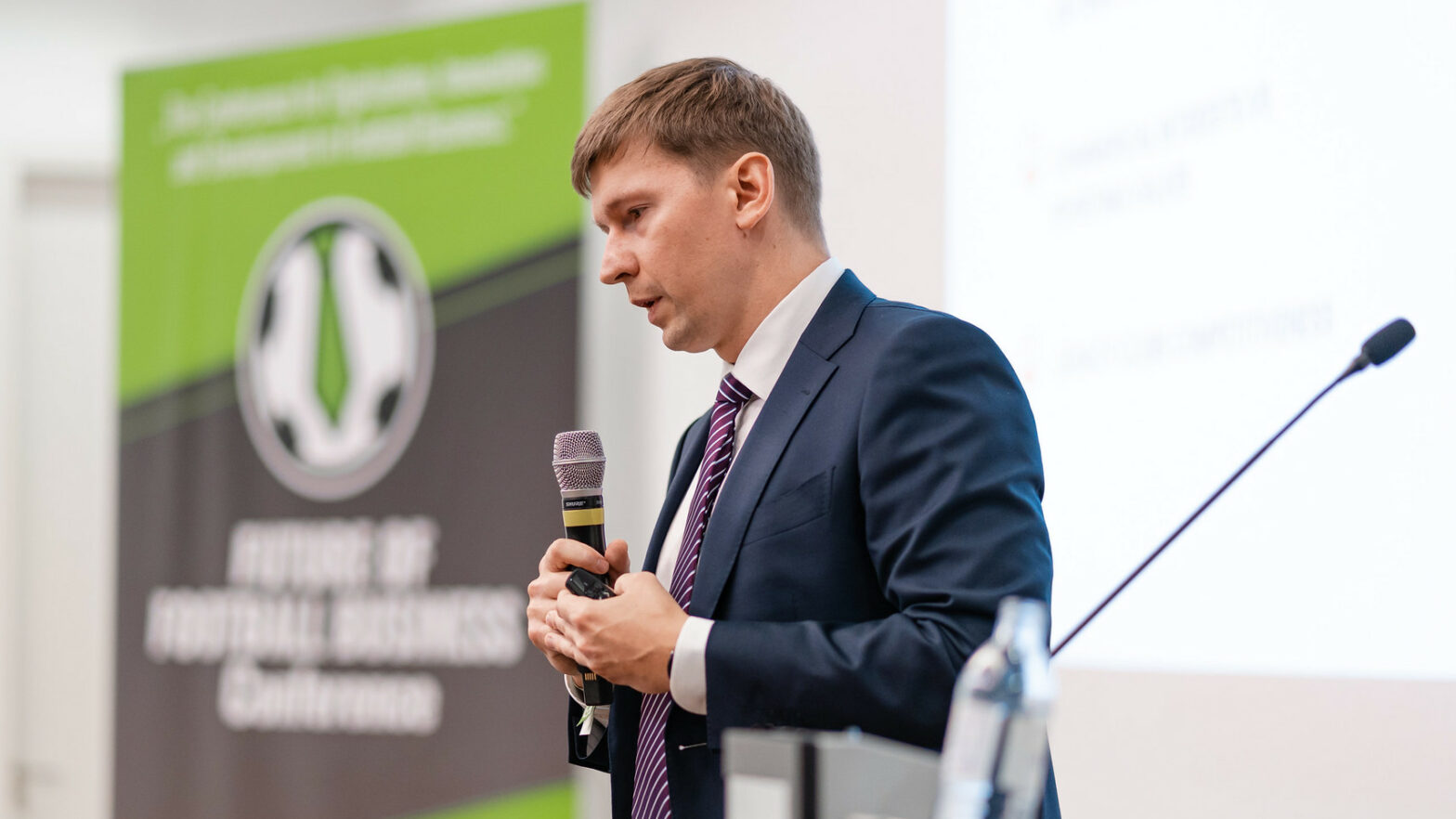In the first episode of the new season of the Football Business Podcast named “Can multinational leagues be the future of football?” we talked to Maksims Krivunecs, Executive Chairman of the Latvian Football Virslīga and member of the Board of Directors of the European Leagues. Below are the podcast’s key takeaways.
Is the European Super League a multinational league?
Maksims firmly believes that the European Super League (ESL) is not quite the same as the multinational league concept. The ESL does not include different nations at core but having big clubs from different markets. Frankly speaking, its focus is on the markets, not the nations and that’s a very important distinction. Though the argument for the ESL seems very understandable, this kind of project will influence the whole football system in a negative way. ESL will disrupt the market in all 55 UEFA countries since all stakeholders will invest in it, leaving less for everyone else. This is why this project is being considered at the European Union and the Court of Justice level. It is crucial to get a final judgment on this project since it may be the second most dramatic and significant case after Bossman.
The gap between big and small clubs/leagues in football
Maksims stated that the UEFA’s existing model has been sustainable to certain degrees. Obviously, many issues need to be fixed, especially narrowing the gap between big vs. small leagues/clubs or even the gap between clubs within the same league. There are many strategies to deal with it, but not all are applicable. For example, the American salary cap has been hotly debated for quite some time, but apparently, it would not work in the European Sports system. Still, Maksims believes winning the legal case and keeping the current model for medium and small leagues is the first crucial step because all the leagues are getting money from UEFA for the youth system development and infrastructure projects. So, it is interesting to see what the (court) decision will be because whoever is the regulator is also the competition manager, and that is what the ESL wants to prove to the court there is a conflict of interests.
Why multinational leagues?
The answer is in resources. In order to compete, leagues and clubs need resources. Still, small and medium leagues with limited resources can hardly keep up with bigger leagues. It is the same in business, where bigger companies will have more opportunities and instruments to grow. Let’s take Latvia as an example; having a small market with just only 2 million people with an economy is still in the development stage. Latvia needs more resources to develop the whole football system and club members. Maksims and his colleagues learned from history, the likes of the Scandinavian or Benelux leagues, to first increase the market size and create a favorable investment climate to bring more revenues.
“The idea is simple. When we talk about the idea of the Baltic League, we talk about forming a bigger market, a 6-million-people market, to attract interest from broadcasting companies, sponsors, and even governments.”
Why is a multinational League perfect for the Baltic region?
Within the UEFA, only the Baltic countries are in the best situation for a pilot project. First, Estonia, Latvia, and Lithuania share many economic, historical, social, and cultural similarities. These countries share the same history and have no borders as EU countries. They also have many economic similarities, such as GDP, purchasing power, and market sizes. Hence, it’s less challenging to integrate and avoid many conflicting points. Second, all three leagues have the same competition levels; in other words, the top sides from each country have an equal chance and increase the competitiveness balance. There is also synergy in the competition format, especially the balance of competition fairness and element of luck.
Common challenges when organizing a multinational league
Maksims shared from his own experience the most common challenges when managing the Baltic League:
Access to UEFA competition – the multinational league might affect the available slots for the UEFA competitions. For example, 3 Champion League spots and nine Conference League spots may go down to 1 Champion League spot and three Conference League spots. Most teams want to compete in UEFA tournaments for pride and TV rights money, so this is the big question.
Infrastructure quality – To ensure consistent infrastructure quality, the common league needs to gain bigger interest from municipalities and the government to develop facilities such as stadiums.
Competition Calendar – Although all three countries have summer leagues, some differences still need to be negotiated because it affects each team’s pre-season preparation.
Harmonization of regulations – each country’s tournament has different rules, such as foreign player policy, so the negotiation between all stakeholders requires much more work and patience.
Operational and Management system – the question is how to combine the boards from three leagues/federations and how to create the management structure for the common league. The Baltic League has agreed on the league competition and cup tournament formats.
Loss of national football traditions – The multinational league, might take away some local values like historic rivalries or derbies. Still, the multinational league is a great opportunity to create new regional rivalries or traditions.
Can a multinational league be the future of football?
Maksims stated that it is definitely possible but needs a good case study as a proof of concept, and the Baltic region is the only place within UEFA that can deploy this pilot project. He firmly believes that a multinational league is an impactful approach to reducing the gap between small and big leagues. Furthermore, this concept will attract more investment interest from governments and private organizations to create football nations.
“If we don’t do this (multinational league), all three Baltic countries will remain at the same pace and will probably never play at the Euros or World Cup.”


 Upgrade to Premium Now
Upgrade to Premium Now







